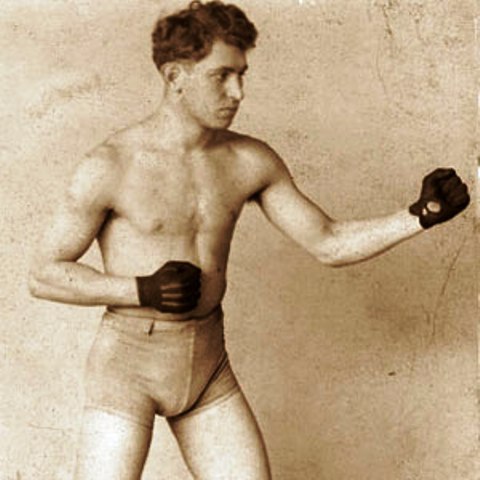Modern-day boxing can not legitimately declare to be higher than boxing prior to now. In actual fact, by way of the technical skills and talent stage we see at present, it’s possible worse. However one factor has positively improved: document maintaining. Previously, a bout may happen and if it wasn’t reported within the native paper for some motive, any proof of the competition would rapidly disappear. The converse was additionally true. Boxers and their imaginative managers may pad the document with bouts that by no means occurred in an effort to make the fighter in query seem extra formidable, and thus extra marketable.
However nobody disputes the truth that mild heavyweight champion Battling Levinsky was one of many true “iron males” of boxing, a extremely energetic fighter who loved a two decade lengthy profession throughout a time when “extremely energetic” meant preventing a dozen instances or extra in a yr. In 1914 alone, Levinsky fought 36 instances, and all of these contests have been verified. Examine that to at present the place 4 or 5 bouts is a busy yr for many pugilists.
Levinsky’s official document is daunting sufficient. It states that he scored 196 wins, together with newspaper selections, in 287 bouts. That signifies that a mean yr for the fighter whose actual identify was Barney Lebrowitz concerned nearly 30 matches. However till his dying day, Levinsky maintained that he truly participated in additional than 5 hundred contests, and there’s actually no manner of figuring out for sure whether or not his declare is bogus. However within the a long time since, boxing historians have combed by way of municipal data and previous newspapers to try to decide the reality, and because of this the colourful story of what Levinsky completed on January 1, 1915 is now extensively thought to be simply that, a narrative.
Levinsky had the model to be as energetic as he was. A fast, slick, defensive genius, he possessed unimaginable stamina and thus may field and transfer spherical after spherical, sustaining little punishment as his opponent ineffectively chased him all around the ring. His supervisor, “Dumb” Dan Morgan (the ironic nickname referring to the actual fact Morgan by no means stopped speaking), boasted for all to listen to about Levinsky’s talent and defensive prowess, in addition to the truth that it was the whole lot he may do to maintain him out of the ring. “He’d struggle each single evening if I let him,” claimed Morgan.
As if to show the purpose, on New 12 months’s Day, 1915, Morgan, based on legend, organized for Levinsky to make not one, not two, however three separate ring appearances. Maybe “Dumb” Dan wished extra consideration paid to his fighter after the wonderful document he had posted within the yr simply completed. Regardless of the case, as a publicity stunt, it labored, and sports activities followers on the time accepted the story at face worth.

Based on the legend, late within the morning of January 1st, 1915, Levinsky boxed ten quick rounds with one Bartley Madden on the Broadway Athletic Membership in Brooklyn. After lunch, Morgan and Levinsky went to Manhattan the place Levinsky boxed one other ten rounds, this time with Soldier Kearns. Following the second struggle, the intrepid pair made their solution to Grand Central Station and boarded the prepare to Connecticut the place that night Levinsky took on Gunboat Smith in a scheduled twelve rounder that was declared a draw.
Like all the good boxing promoters and managers, Morgan was nothing if not a teller of tall tales, a well mannered manner of claiming the person was an incessant liar. Current searches have turned up nothing on the alleged bouts with Madden and Kearns. In actual fact, Madden was inactive for all of 1915, whereas Alfred (Soldier) Kearns did struggle with Levinsky that yr, however in July, not January.
However on the time individuals thought the story true, it solely including to Levinsky’s popularity as some of the energetic boxers within the sport’s historical past. After which a younger reporter had the temerity to ask the formidable younger pugilist: “Mr. Levinsky, why do you insist on such a demanding schedule?” A question to which the battler — with an air of incredulity, as if a extra silly query may scarcely be conceived — bluntly replied: “I like cash!”
The next yr Levinsky, whose document boasts battles with such greats as Tommy Gibbons, Gene Tunney, Jack Dempsey and Harry Greb, would win the world mild heavyweight title from Jack Dillon. He would maintain it till 1920 when he was defeated by Georges Carpentier. — Robert Portis





















